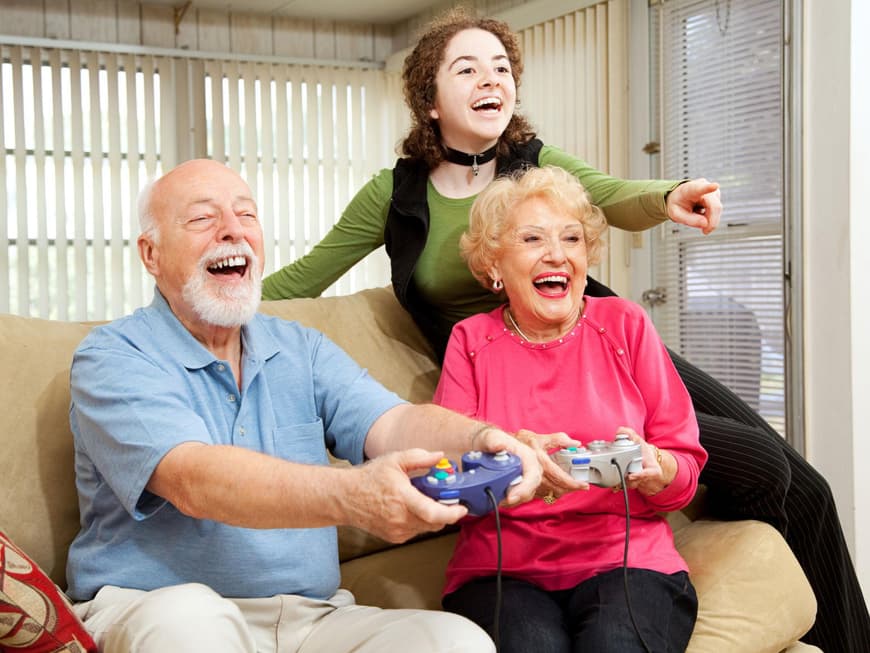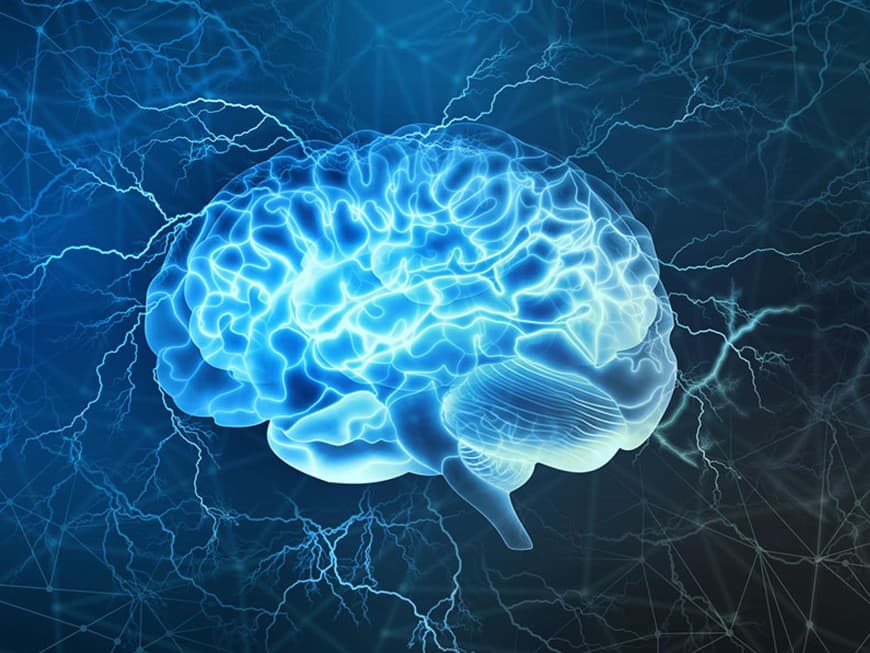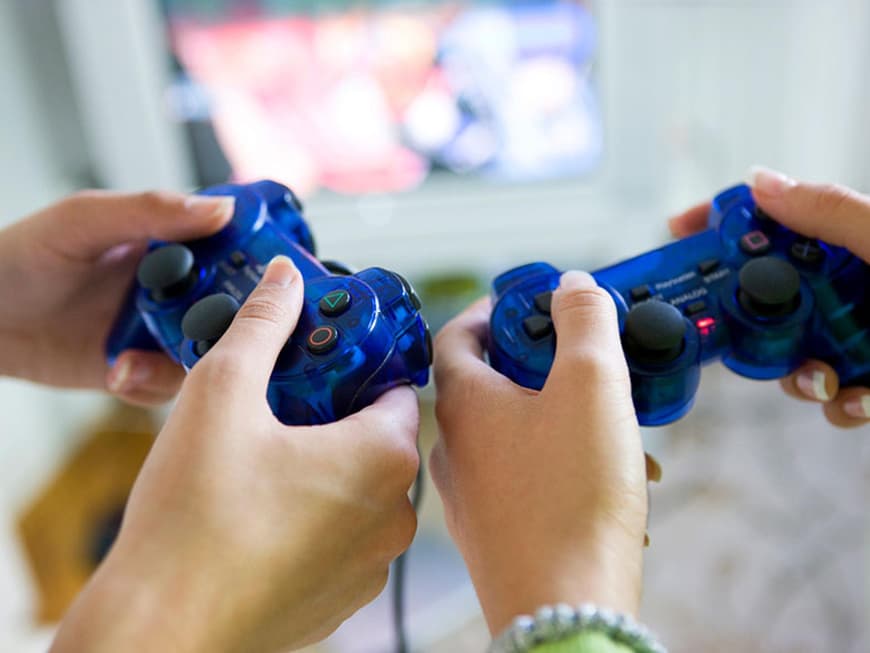
Science is divided
Of course, the question of the influence of online gaming on the brain is not one that is only asked in everyday conversations. Science has also long since taken up the subject. But even here there is no consensus. This is shown, for example, by the article "Are computer games bad for the brain?", which was published on November 15, 2017 in the knowledge section of Mitteldeutscher Rundfunk (MDR). The article was triggered by a study by the University of Ulm, which argued that online games have a negative impact on the brain and in which players of the online game World of Warcraft served as test subjects. According to the study, a person who plays one hour of online games per day loses brain volume after just six weeks. This reduction was observable in the orbitofrontal cortex of the brain, the MDR reported. According to the article, this area regulates human emotions and is considered to be the seat of moral and ethical feelings.

Are online games better than their reputation? Photo: Fotolia
Before panic breaks out among all online gamers, the article quotes other studies with slightly different results. According to a study by the Institute of Cognitive Neuroscience (Department of Neuropsychology) at Ruhr University Bochum, for example, regular computer gamers are better than other people at "quickly grasping situations, generating new knowledge and categorizing what they have learned", according to MDR.
Another study cited dates back to 2013 and was conducted by the Max Planck Institute for Human Development in Berlin. As part of the tests, a group of young adults who played the game "Super Mario 64" for at least half an hour a day over a period of two months were observed alongside a control group. The scientists observed altered structures and growth in the brain regions "associated with navigation in three-dimensional space, memory formation, strategic planning and fine motor skills". This was reported by ARD in 2015 in the article "Computer games in the fight against dementia" on DasErste.de.
Online games and brain activity: are we all talking about the same thing?
On the one hand, the above examples show that the influence of online games on brain activity is difficult to assess because the term "brain activity" covers a broad field. While the authors of one study investigated an area of the brain responsible for human emotions, other studies focused on areas of the brain involved in quickly grasping new situations or fine motor skills, for example.
On the other hand, the question of the influence of online games on the brain is perhaps just as meaningless as the question of whether sport trains a person's ability to run fast because of the vagueness of the term "online game". For a sprinter, the answer to this question must surely be yes. The same goes for a cross-country runner, unless you compare their speed with that of a sprinter and interpret "fast" as "relatively fast". For weightlifters, on the other hand, the answer is probably "no".
Online games are similar to sports. You can only compare the different online games to a limited extent. Online games include strategy and shooting games such as World of Tanks, strategy games such as online chess, eSports games, role-playing games, economic simulations, online card games and many other game categories. Some of them define very different requirements for players. A rough distinction can be made between dexterity and thinking skills in the narrower sense, with skills such as strategic thinking and memory. However, it would be wrong to only consider brain games in terms of a possible positive influence of games on the brain.
You can learn a lot with online games

Online games - quick thinking and skill are required. Photo: iStock
You turn the right stick on the gamepad from bottom to left and then counter-clockwise from left to right: sounds a bit complicated, especially if you have to perform the movements quickly? It is. The movements on the gamepad described here are part of the so-called 5-star moves in the soccer game FIFA 18. If you use them with the right player on the gamepad, he performs some pretty impressive tricks with the ball on the screen. You have to learn these moves and perform them at exactly the right moment in order to use them wisely in the game. This requires a lot of training, which involves the brain as much as the fingers. The same applies to other games that require more complicated moves in order to play them as successfully as possible. Business games and other simulations challenge the brain in a different way, but no less: you develop complex strategies, possibly keep an eye on various parameters and have to react to changing situations as quickly and adequately as possible. This makes the game exciting. And challenging.
Online poker also trains the brain
Card games such as online poker are also online games. They are games of chance. You might therefore think that they have no positive effect on the brain, but are neutral or even have negative effects. However, poker can actually be an activity that keeps the brain active and challenged. Anyone who has not yet mastered the game must first learn poker. Good online poker providers have put clear lessons online for this purpose. Learning them is an initial challenge for players.
Then you can start playing. Of course, luck is involved in online poker, more so than in chess or Go, for example. But online poker is not just luck. Really good players prove this with every game they play. There is also a study that suggests that playing cards has a positive effect on older people. "Seniors who frequently play cards or solve crossword puzzles are significantly less likely to suffer from dementia diseases such as Alzheimer's," reported the newspaper "Die Presse" in 2009 in the article "Crossword puzzles and card games reduce the risk of Alzheimer's". The newspaper referred to a study by the French Institute for Health and Medical Research in Paris.
Do online games increase mental fitness? If you take all the findings together, the answer is probably: it is impossible to say for sure. But there is much to suggest that online games can at least have a positive effect on the brain. If you add to this the fact that online games are often fun, you should perhaps just give them a try if you feel like it. After all, pure fun is also a good motive for choosing something. And if you get some training for your brain in the process, all the better.
Online brain games as an idea for me
Whether during your lunch break, as a fun pastime in the waiting room or to relax in between - discover our exciting free online games now. Beginners and real game fans will find what they are looking for here. Free brain teasers, strategic browser games and classics such as puzzles, solitaire and mahjongg will keep you entertained every day - with no registration or download required. Click here to see all games >>>






